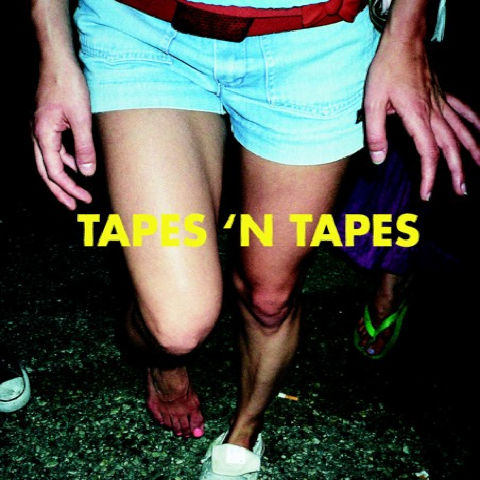If there’s one thing we’ve always known about Tapes ‘n Tapes is that they are fans—Pavement-worshipping, Pixie-idolizing fans. But so what? All bands are fans who reuse, reinvent and recycle the music of their heroes; that’s the musical circle of life that has been turning since the beginning of time and will continue until the planet explodes. Good artists are talented synthesizers of the past. Great artists are master assembly line workers with the salesmanship to sell us their recycled goods as exciting and new.
And on Tapes ‘n Tapes’ breakout LP The Loon, the salesmanship was great. The album was frenetic and diverse; chock-full of wildly catchy hooks and throws to indie-rock’s foundations. But the real trick of The Loon was always its attitude. It was riotously unabashed and unapologetic, performed with an energy and lack of self-reflexivity that can usually only be captured when you’re dancing alone in a room that has no windows or mirrors (the album was reportedly recorded in a Wisconsin cabin with no running water).
But on their 2008 follow-up, Walk It Off, Tapes ‘n Tapes suddenly seemed to be aware that someone else was in the room. They released the album into a world full of new fans and big expectations and seemed to, for the first time, be trying to please someone other than themselves. The result was a sloppy and uninspired sophomore showing that received little critical acclaim or commercial success. It was a bad album.
Now comes Outside, Tapes ‘n Tapes’ third LP on which they took a do-it-yourself approach after ditching XL Recordings. It is, without a doubt, a comeback album of sorts that seeks to prove something. From the get-go, it’s clear that Tapes ‘n Tapes are making a conscious effort to get back to what allowed them to play music for a living in the first place by embracing their hero-worship tendencies, emphasizing drummer Jeremy Hanson’s schizophrenic beats and letting singer Josh Grier off his leash.
On the opener “Badaboom,” the band shows off their chops, exhibiting restraint and polish before allowing Grier to ugly-up and let out some of the adolescent cries that punctuate some of The Loon’s more memorable moments. The hammy “One in the World” does a good job of blending Tapes ‘n Tapes’ patented absurdity, which can often border on plain silly, with the album’s catchiest chorus. But Outside’s best and most revealing song is “Hidee Ho.” While Tapes ‘n Tapes have always been a band with a bit of a dark side, it always seemed to come out in jest; there was never really a doubt that these dudes were having fun. But the hauntingly clean and spare guitar riff that eats up the first full minute of the song and leads into Grier wailing lines such as, “All of these liars/ They come in the night/ It’s on/ I’ve been abused” signifies a bitterness and fatigue that’s new for Tapes ‘n Tapes. The track slowly builds to a noisy, messy jam session over which Grier maniacally screams nothing more than variations of the word “Hey!” It’s the scream of four bright-eyed guys from Minnesota who possibly found themselves a bit over their heads after getting famous wildly quickly. It’s the scream of a somewhat predictable but talented band that is absolutely terrified of being forgotten—left on the “Outside” looking in.
Outside has its flaws. It lacks the continuity or cohesiveness that could make it a very rewarding album; sometimes it feels like a twelve-song set-list that might have been scribbled on a green room napkin. But I can’t help but forgive Tapes ‘n Tapes for the album’s disorganization because I never liked this band because they were calculated, deliberate or thoughtful. I liked them because they were thoughtless—writing songs that seemed more like creative, symptomatic outbursts from a group of angsty Midwestern indie kids than carefully crafted works from self-proclaimed artists.
Tapes ‘n Tapes will probably never again manage to capture the youthful, devil-may-care magic of The Loon—those times are passed. But Outside, with its handful of pretty fantastic tracks, shows positive signs that this band may not be the victim of early success that it once seemed destined to be.

